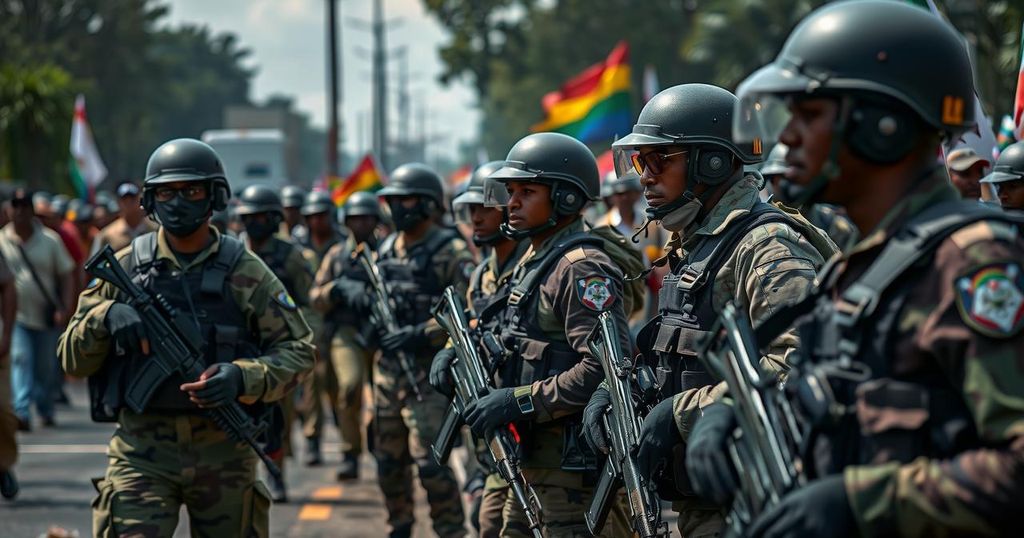Human Rights Watch reports that security forces in Mozambique have killed at least ten children during protests sparked by disputed presidential elections. The unrest follows allegations of electoral fraud after the Frelimo party was declared the winner. Over 2,700 individuals have been detained, and claims of violence against protesters are rampant, exacerbating the human rights crisis in the nation.
In Mozambique, security forces have reportedly killed at least ten children and injured many more while attempting to suppress widespread protests that erupted following a disputed presidential election, as stated by Human Rights Watch. The protests erupted after the ruling Frelimo party was declared the winner of the October 9 elections despite allegations of fraud and irregularities. Since the election results were announced, security forces have detained hundreds of minors, contravening international law, according to human rights advocates.
The unrest follows the announcement of Daniel Chapo as the election winner on October 24, which has extended Frelimo’s reign since gaining independence from Portugal in 1975. These protests, driven by public outrage over reported electoral fraud and the violent deaths of opposition figures, have deteriorated into significant unrest, with accusations directed at the government regarding election manipulation and suppression of dissent. International observers, including the EU, have criticized the election results, contrasting sharply with the claims made by the government.
In light of the escalating violence, it is reported that at least 30 individuals have lost their lives as security forces employed live ammunition against demonstrators, while local organizations claim the death toll may be as high as 50. The Mozambique Bar Association has facilitated the release of over 2,700 people arrested during these protests, many of whom were minors. As a response to the situation, schools and businesses have closed, and a heavy military presence has been deployed to restore order in affected areas, including the capital, Maputo.
The political landscape in Mozambique has been fraught with tension, particularly following the recent presidential elections that have sparked widespread protests. The election results announced on October 24 declared the Frelimo party’s candidate, Daniel Chapo, as the winner under contentious circumstances, leading to allegations of fraud from opposition parties and international observers. This unrest has culminated in significant violence, including the deaths of children and opposition figures, which has galvanized public outcry and turned the protests into a critical human rights issue.
In conclusion, the ongoing unrest in Mozambique illustrates the perilous intersection of political dissent and human rights violations, particularly affecting vulnerable populations such as children. The reported deaths and extensive detentions highlight a troubling trend of state repression in response to public dissent. The international community’s response and potential interventions may be crucial in addressing the escalating crisis and ensuring accountability for human rights violations within the nation.
Original Source: apnews.com







